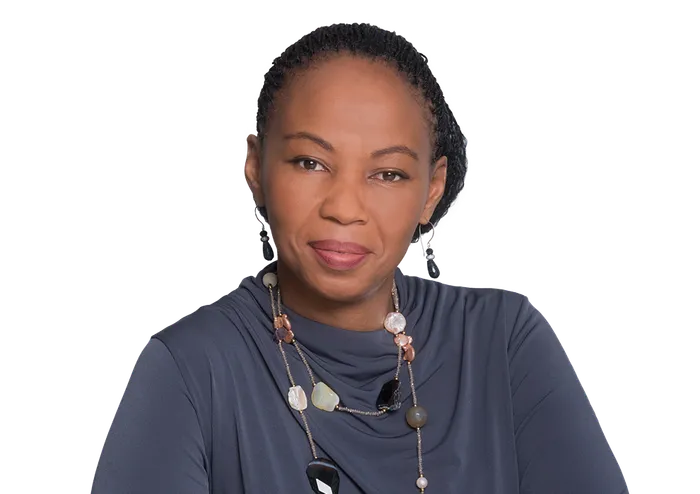The battle for inclusive leadership in SA’s financial services sector

What does it say about South Africa’s financial services sector when, in searching for a CEO for one of the country’s top investment firms, only 14% of the candidates are women, and even fewer are black?, asks the author.
Image: AI Lab
What does it say about South Africa’s financial services sector when, in searching for a CEO for one of the country’s top investment firms, only 14% of the candidates are women, and even fewer are black?
Despite two decades of transformation policy, the female leadership pipeline remains worryingly thin. And while the gender imbalance is not new, the urgency has intensified. Succession challenges, the emergence of new banks, and a rapidly evolving consumer landscape have created a real scramble for leadership talent…and the pool is not deep enough.
This is not just a gender issue, it’s a broader talent crisis. Over the past five years, South Africa’s financial services sector has undergone a quiet but significant shift in how it sources and evaluates leadership. The traditional pipeline, once dominated by finance-specific experience, is now expanding to include candidates from telecoms, consumer goods, and digital-first sectors. This convergence is reshaping the skills profile of future banking leaders.
What’s driving this change? A growing need for customer-centricity. Banks are no longer just financial institutions, they’re service platforms competing for consumer attention. As a result, candidates with experience in consumer goods, particularly in telecom or financial services divisions, are increasingly sought after. Strategic partnerships, innovation, and customer experience are now central to leadership mandates.
In nearly every executive search we’ve conducted in financial services over the past five years, from retail banking to insurance, the brief has included a strong emphasis on digital fluency and customer-focused growth. With the exception of one investment management search, all roles were open to candidates outside the traditional banking sphere. What we’ve been experiencing is that banks are prioritising agility, cross-sector experience, and strategic thinking over legacy credentials.
But even as the industry opens up to broader skill sets, the gender gap persists. In a broader search across financial services and insurance, only 21% were women. Of those, 80% had held CEO, chief operating officer, or managing director roles, and that’s encouraging, but still far from where the country aims to be when it comes to inclusivity and diversity.
According to the 2024 South Africa Spencer Stuart Board Report, only 37% of all board directors in the JSE’s top 50 companies are women, of which only five are CEOs. The issue isn’t just at the top: it starts one or two levels lower. The sector is not nurturing enough women at the senior management level to feed into executive roles. If that isn’t tackled soon, there won’t be enough women ready accept board positions in the next five or ten years.
When we look at the cohort of women currently in executive roles, many are in their late 40s to early 50s, so they’re not retiring anytime soon. However, below them there’s a concerning gap, and that’s where the real crisis lies.
Financial services is one of the most structured sectors when it comes to graduate programmes, and should be fertile ground for female leadership. Yet women continue to leave before reaching senior roles. Why?
The reasons are complex: some leave to become entrepreneurs, while others seek flexibility or better work environments. But many leave because they’re not being developed, mentored or coached. Perhaps they also feel they’re not being given the opportunities they’ve earned and deserve?
Employment equity, while well-intentioned, has sometimes led to accelerated promotions without the necessary support. We’ve seen very capable people moved into exco roles before they are ready, and not supported with the tools they need to succeed. And when they struggle, the system rejects them, rather than pausing for introspection.
We are already seeing the results of intentional leadership development. Emrie Brown (CEO of Rand Merchant Bank), Mary Vilakazi (CEO of FirstRand), Leila Fourie (CEO of the JSE), Margaret Nienaber (COO of Standard Bank), Funeka Montjane (CEO of Personal & Private Banking at Standard Bank), and Basani Maluleke (Group Executive of Retail at Capitec) are prime examples of women who’ve risen through the ranks in this highly male-dominated industry.
But there is more good news: the investment management sector is seeing increased collaboration between firms and industry bodies like ABSIP (Association of Black Securities & Investment Professionals) and AWCA (African Women Chartered Accountants) led by Mohau Leteka and Pumla Molope respectively. These organisations are working to recruit and mentor young women, knowing that the challenge is not just about attracting them to the sector, but keeping them.
So what should still be done to build a sustainable pipeline of diverse talent? It starts with:
- Investing in leadership coaching at middle management level
- Creating succession plans that prioritise women in P&L roles
- Mentoring with purpose, not just for optics
- Encouraging strategic career management across sectors
If a woman graduates in her early twenties, she will most likely be ready for a board role in her late forties to early fifties. The development work needs to start now — if not yesterday — because South Africa’s boards are already feeling the consequences of inertia.
The future of financial services leadership will be defined by those who can bridge sectors, understand customers, and lead with agility. The question is: are we building that future fast enough?

Lerato Ndlovu is a Leadership Advisory Consultant in Spencer Stuart’s EMEA Financial Services, Private Equity and Industrial practices.
Image: File
Lerato Ndlovu is a Leadership Advisory Consultant in Spencer Stuart’s EMEA Financial Services, Private Equity and Industrial practices.
*** The views expressed here do not necessarily represent those of Independent Media or IOL.
BUSINESS REPORT